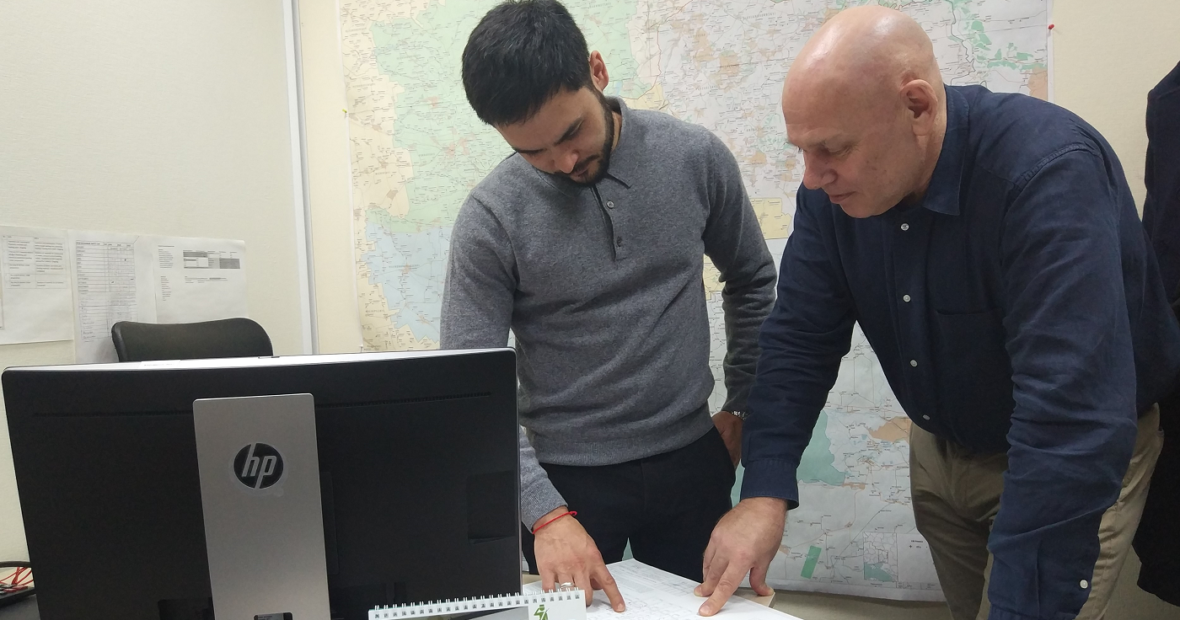William, how did you begin your career in the ICRC?
In 1996 I was recruited by British Red Cross to work in Rwanda with the ICRC on water supply projects. Then I worked for the International Federation of the Red Cross and the Red Crescent Societies and British Red Cross before rejoining the ICRC to work in Pakistan in 2007 and I have worked for ICRC since then. I started working in Ukraine in 2016. The first three months of my mission I spent in Luhansk and Donetsk and that was valuable in giving me a strong insight into the way things worked and the needs of the affected population. Before that, I was in Ethiopia as a water and habitat coordinator for ICRC. Previously I have been a coordinator in the Caucasus region, Afghanistan and Pakistan.
Which projects implemented with your participation or leadership are you proud of?
I enjoy working with the water and habitat teams to support their implementation of all projects both large and small from the repair of a house for one family or the rehabilitation of patients’ rooms in a hospital to larger projects such as the reconstruction of Karlivka Pumping Station. Both large and small projects improve people’s lives. The main satisfaction is assisting and supporting the team to develop, which has resulted in the good implementation of numerous valuable projects.
What were the main challenges for you as a professional in Ukraine?
The delegation was quite new when I arrived. Therefore, building a team and the strategy, tactics and processes to implement a large programme was a challenge. We now have a good team of engineers who implement efficiently and competently.
Understanding the complex urban water supply in the conflict area to enable us to most effectively support the continued water supply was a challenge. The water supply companies are doing a great job in difficult circumstances and it is rewarding to support them to continue their operations.
Understanding how to work effectively and coordinate with our external partners is important and we have built good working relationships.
In the last couple of years, the Water and Habitat team grew from several people to over thirty members. What does it take to effectively manage such a big team of professionals working in six various locations?
Working to get the right people in the right positions and then retaining them. Working to establish a good implementation strategy, tactics and processes to enable smooth implementation in the organization. Maintaining focus to continually improve my work and the work of the team. Perseverance and patience to complete complex projects. In the field, it is all about looking at and congratulating the teams on the results and listening to and observing the issues that the field engineers face and then working with them to solve those issues both in the short and the longer term. As I said, we have a good team and they have been a pleasure to manage.
What are your professional plans after finishing this mission in Ukraine?
I have quite a lot of holiday and feel I need a significant break after intense but enjoyable four years in Ukraine. This is the country I have spent most time in my career, so Ukraine will always be a special place to me. My daughter was born during this period and my son and daughter have grown up here. I am sure they and my wife will miss Ukraine too. I want to continue to work with ICRC and applying for jobs within the organization.
What would be your advice to your successor or a delegate coming to work in Ukraine?
There are always challenges ahead that require the application of thought, perseverance, courage and hard work! To enjoy and respect working with the water and habitat team, the delegation as a whole and our partners to continue our valuable work.

